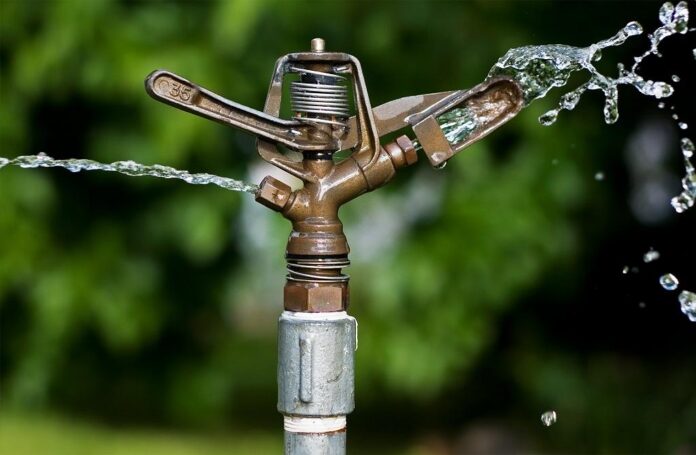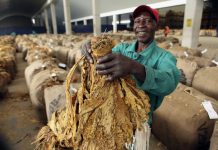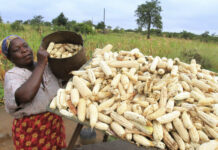Sydney Kawadza
Farmers have called on government to deal with several issues affecting agricultural production so that some of its goals, including the Accelerated Irrigation Rehabilitation and Development Plan: 2021-2025, are attained.
In responding to the announcement that Cabinet had approved irrigation programme presented by the Minister of Lands, Agriculture, Water and Rural Resettlement Anxious Masuka, the farmers said the programme could be a welcome response to issues of climate change and droughts.
However, economic analysts said although the government programme was brilliant on paper, there was still need to secure the necessary funding for the project to be successful.
In an interview, Zimbabwe National Farmers Union chief executive Edward Dune said a plethora of challenges were affecting production on the farms hence the need for programmes that enhance production.
“Farmers face many problems including lack of resources, inputs, finance and markets in a harsh macro-economic and agricultural operational environment.
“Production has also been affected by an inconsistent policy environment and inconsistent human resource base at Government level hence the plan is welcome,” he said.
Dune said the accelerated irrigation development plan and availability of facility carries the answer to climate smart agriculture.
“The ZNFU is on record articulating the farmers’ capacity needs and aspirations to migrate from convectional to climate proof agriculture. The increase of irrigable land and improved access to finance, inputs and markets spells the milestones towards middle class economy by 2030,” he said.
Addressing the media at the 42nd Post-Cabinet Press Briefing, Acting Information, Publicity and Broadcasting Services Minister Nqobizita Mangaliso Ndlovu said Accelerated Irrigation Rehabilitation and Development Plan will pursue a number of specific objectives, among them, increasing the annual cropping area from 156 000 to 350 000 hectares and developing irrigation area to 400 000 hectares by 2025.
“This will be achieved through rehabilitation and modernisation of 45 000 hectares of existing irrigation; development of 204 000 hectares of new irrigation infrastructure across the country to enable meaningful production in marginal areas; rehabilitation of 26 000 hectares of communal irrigation on 450 irrigation schemes; and establishment of a Presidential District Irrigation Vision 2030 Accelerator, comprising 200 hectares per district,” the minister said.
He said the plan would also seek to improve efficiency of water use by adopting modern irrigation systems as well as access to finance, inputs and markets, and to improve governance and business ethic for irrigation schemes.
“The policy and regulatory environment will be improved in order to motivate private sector participation and accelerate dam and irrigation infrastructure development, while the establishment of micro-water harvesting and irrigation methods for households will be promoted and incentivised,” Ndlovu said.
However, economic analysts, while appreciating government efforts to improve agricultural production in Zimbabwe, said there was also need of full implementation of the blue print with enough funding.
“Government has consistently come up with brilliant papers which are, however, gathering dust at their high offices without much implementation. What would a brilliant piece of paper benefit the people without implementation?
“The President, should, firstly, make sure there is full implementation of the plan so that the set goals are achieved and, secondly, there is the issue of funding. The second point is critical especially within the difficult economic situation we find ourselves in as a country,” a Harare based economist said.
Government is under pressure to fund its various programmes including finding money to compensate commercial farmers for the developments at the farms they were occupying.
There is also pressure to mechanise agricultural production in Zimbabwe with government seeking to introduce modern farming methods in the country.












